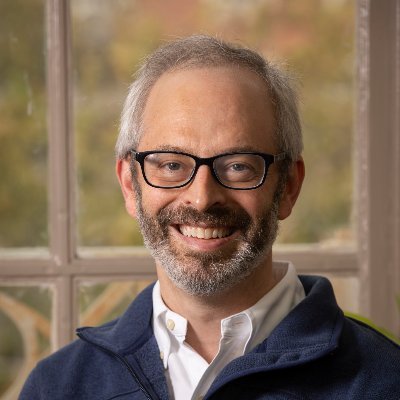
Courtesy of Alan Gross
Cary Gross, professor of medicine and director of the Yale Cancer Outcomes Public Policy and Effectiveness Research Center, or COPPER, received the first-ever Yale Cancer Center Award for Mentorship Excellence last month.
On Jan. 16, the Yale Cancer Center, or YCC, virtually held its annual Conclave award ceremony to celebrate notable faculty and healthcare provider accomplishments in 2020. Clinical and research prizes were awarded to faculty and staff, including the Award for Mentorship Excellence which was given to Gross. The award is given out by the Director of the YCC Charles Fuchs, who presents it to a faculty member who has acted as an inspiring and supportive mentor to younger members of the field. 2021 marks the first year the YCC has presented this award.
Gross, professor of medicine, director of the National Clinician Scholars Program at Yale and founding director of COPPER, has actively engaged in mentorship for over 15 years. He was cited as “navigating the art of mentorship effectively as the ultimate teacher and coach with timeless energy, respect, and humor,” according to the award’s website.
“Mentorship is something I really enjoy doing,” Gross said. “If you can help to train the next generation of researchers, that’s a whole group that can go on to mentor others and have a positive ripple effect. I believe the committee recognised my long standing dedication to mentorship and the fact that I enthusiastically put a lot of time and energy into it.”
Deputy Director of the YCC Daniel DiMaio, who was on the selection committee for this year’s award winners, believes that Gross was selected because he embodies the YCC’s key values.
DiMaio explained in an email to the News that mentoring the next generation of leaders in the field of cancer research is an important part of the YCC’s mission. He wrote that the mentorship award was created to honor scientists who have shown strong dedication and success in this endeavor.
“Although most of our awards focus on research accomplishments, the Yale Cancer Center leadership decided it was appropriate, even overdue, to recognize outstanding achievement in this area as well,” DiMaio wrote. “As soon as the award competition was announced, we received numerous nominations for Dr. Gross, because for years he has exemplified what we consider an outstanding mentor to be, as he has built our cancer outcomes program.”
According to Gross, he was inspired to be a valuable mentor by the scientists who aided him throughout his career.
Twenty years ago, after he had just finished his clinical training and was enrolled in the two-year Robert Wood Johnson Fellowship Program at Johns Hopkins University, Gross met dedicated mentors like Neil Poe of the Johns Hopkins University School of Medicine.
“Neil was a person who was always incredibly busy, but when you sit in his office you feel like time stops and you have his full attention,” Gross said. “He always tried to learn exactly what problem you were trying to solve and helped thoroughly brainstorm alternatives. Neil and others had such a positive impact on me, and from their example, I’ve been devoted to trying to be a good mentor.”
Gross mainly cited the collaborative aspect of mentoring students as one of his favorite aspects of the role. He feels that working with “bright, energetic, mission-driven people” who are trying to make an impact in the world is motivating, and if he can assist them on their path to success, he is fulfilled. He believes strongly in not only sharing knowledge with them, but also approaching mentorship as a partnership. Gross emphasized the importance of spending time with his mentees and figuring out together how they can achieve their goals.
Gross also believes in not being a “spoon-feeding” type of mentor, as well as the importance of holding mentors to the same standards as their mentees.
“Mentees should also tell their mentors their expectations, and mentors should take the time to read their project proposal and think about it before the meeting,” he said. “I encourage mentees to let me know what I’m doing well or could be doing better.”
Akhil Upneja ’17 MED ’22, a student at the Yale School of Medicine who has occasionally worked with Gross as his mentee, said that although Gross is not his primary mentor, he has always made time to meet with him before important research presentations.
“Dr. Gross’s best quality as a mentor is his ability to provide the perfect blend of encouragement and constructive feedback,” Upneja wrote. “Over the past 1.5 years, Dr. Gross has helped me put my best foot forward on every occasion, and my analytical capabilities have improved significantly. He has been one of my most significant mentors in medical school, and I am so excited for him to be recognized for this award.”
The Yale Cancer Center’s Annual Conclave Awards were first established in 2009.
Mai Chen | mai.chen@yale.edu







